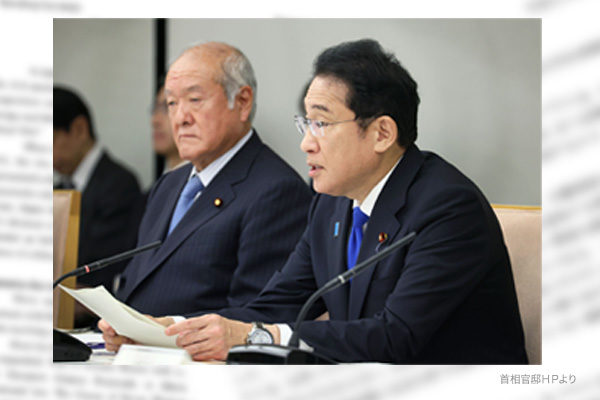A draft of new economic measures that the Japanese government will compile soon includes “strengthening supply capacity” and “returning surplus to the people” as its pillars. The former means shifting the focus from demand expansion to supply capacity expansion. It is true that aggregate demand is coming close to potential supply capacity, and the supply-demand gap is narrowing. But low economic growth still continues as the aftereffect of deflation, and potential supply capacity calculated based on past low gross domestic product (GDP) is lower than true supply capacity. Therefore, aggregate demand has not yet caught up with true supply capacity. In particular, persistently high consumer prices stemming from a surge in imported goods prices restrain consumption, hindering the complete overcoming of deflation.
Therefore, the new economic measures should focus on achieving a sustainable price stability target of around 2% inflation driven by a virtuous cycle of wage increases and consumption expansion. Deflation that has plagued the Japanese economy for a long period of time has led both consumers and business owners to change their behaviors and refrain from taking risks. Economic recovery requires that aggregate demand continue to be sufficient to exceed supply capacity. What should be done is not so simple as “shifting the focus to supply” or “returning natural tax revenue growth to the people.”
Aim at consumption increase
The primary balance, or a fiscal balance excluding revenues and expenditures related to government bonds, has improved rapidly due to the natural increase in tax revenues, resulting in tighter fiscal conditions than in the previous fiscal year. This is because tax revenues during the economic recovery period increase faster than economic growth due to the climb into the black in deficit corporations and progressive structure of income tax rates. Such tax revenue growth is called automatic stabilization. This time, a main factor behind the tax revenue growth is a significant increase in consumption tax revenues due to import inflation. However, the tax revenue growth would diminish the effects of monetary easing. At least for the time being, a primary balance deficit at the current level will be necessary. Thus, tax cuts are required to control the premature automatic stabilization.
In order to increase consumption, the consumption tax should be reduced. Since import inflation is being passed on to prices, they are rising too much in a manner to cut consumers’ real disposable income. Therefore, cutting prices that include the consumption tax is the most effective. However, any consumption tax cut does not have to be a permanent measure. It can be a temporary measure that would last until a demand-driven inflation rate is expected to stabilize at around 2%, with wage growth topping inflation. Specifically, the consumption tax rate cut from current 10% (8% for some goods) to 5% should be effective.
Permanent income tax reform is a longer-term agenda
The government and the ruling parties are considering a temporary fixed-amount income tax reduction of 40,000 yen per person and a 70,000 yen stipend for tax-exempt households. However, they are assumed to be measures for one year only and will have little impact on consumption. Effective for increasing consumption is a constant increase in income.
For a permanent measure, serious consideration should be given to the establishment of a “tax credit system with cash stipend” (that would replace income credit with tax credit and refund the amount that could not be deducted from the tax as negative income tax) as a medium- to long-term agenda.
Etsuro Honda is a member of the Planning Committee of the Japan Institute for National Fundamentals and a former special adviser to the cabinet. He advised then Prime Minister Shinzo Abe for the success of Abenomics.


